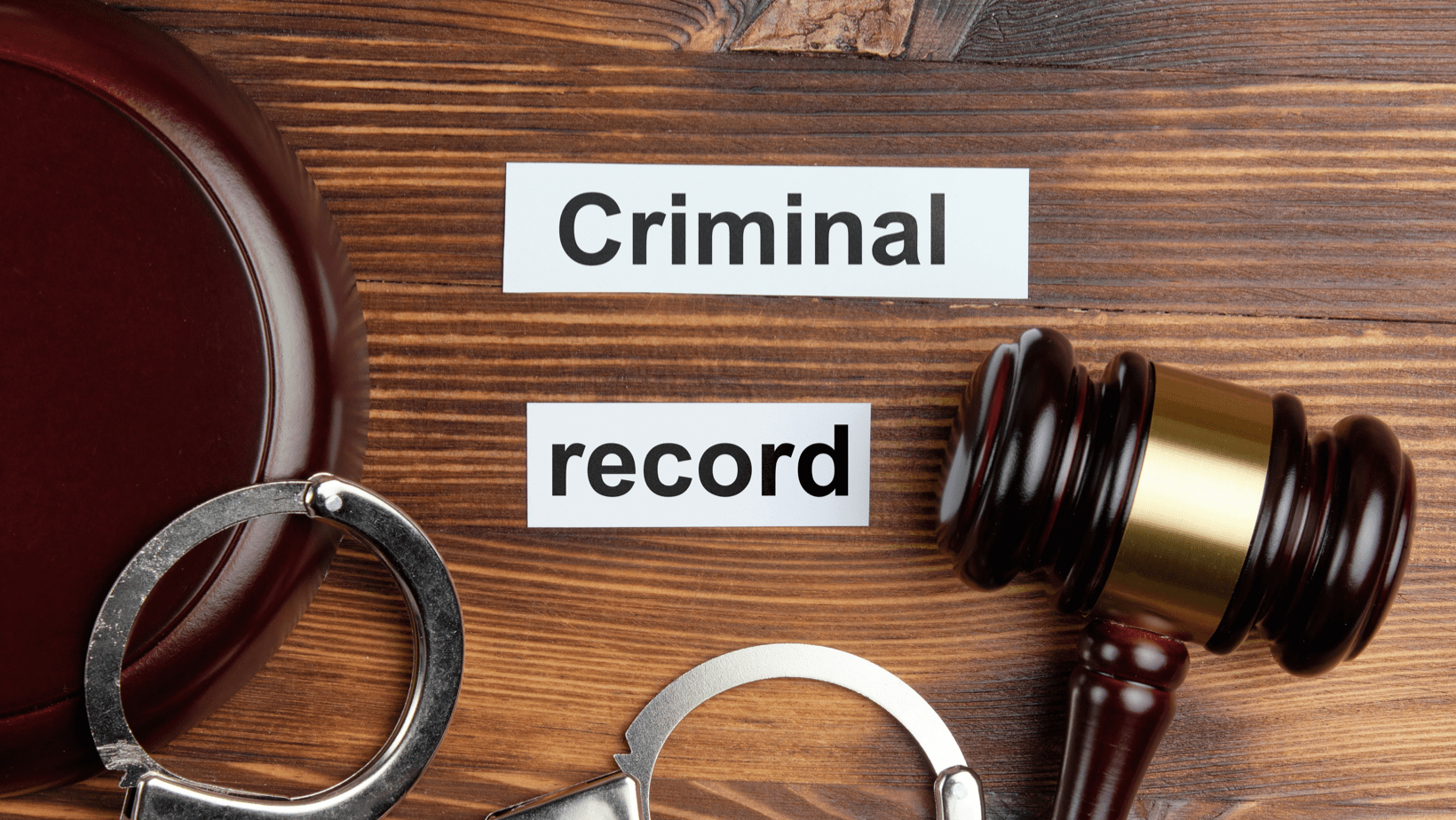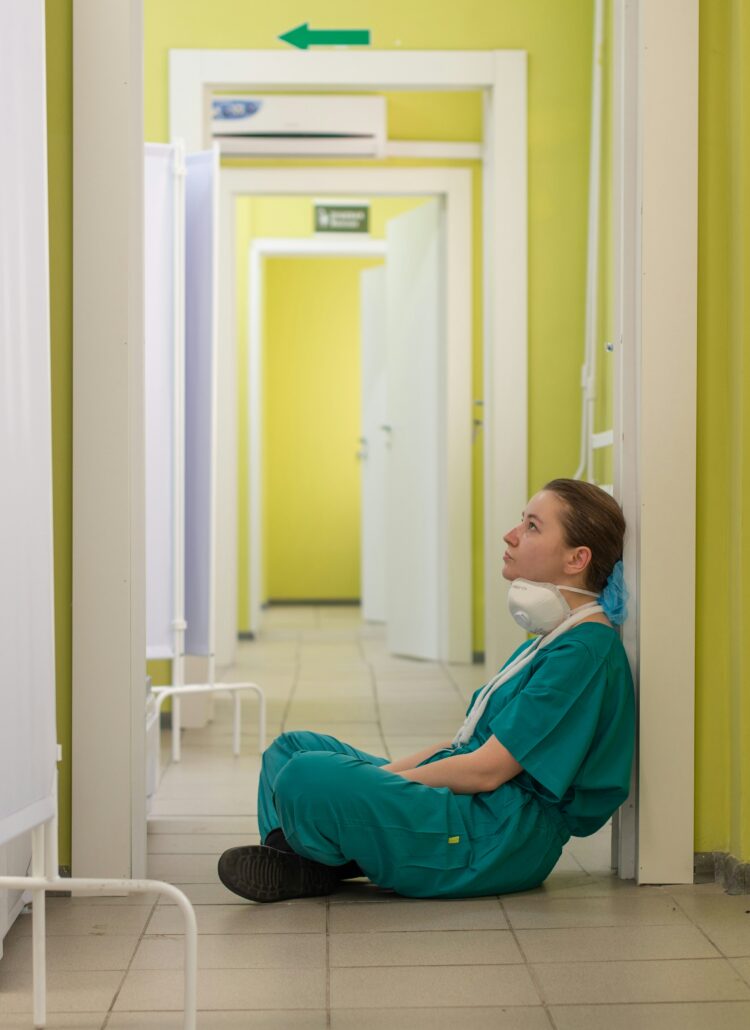
Have you ever considered what it would be like to be a nurse? While many people dream of helping others in the medical field, not everyone is aware that it's actually possible for felons to become nurses.
If you're interested in pursuing a career as a nurse, but have been discouraged by your criminal history, take heart! It is possible for felons to become nurses through the use of legal loopholes and creative thinking.
In this article, we'll go over some of the most common ways that felons can qualify for nursing careers despite their past.
Can You Become a Nurse with a Felony?

If you have a felony, it is possible to become a nurse. It's also possible that in some cases, you'll have to take extra steps to make sure you're able to pass the licensing exam.
There are two things that matter when it comes to becoming a nurse: your past offenses and the state where you live. Some states will allow felons to practice as nurses if they've completed their sentences and served their time, while others will deny them.
In California, for instance, all registered nurses must pass a background check before they can be issued a license by their board. If a nurse has been convicted of any type of felony, including possession of marijuana for personal use, she will not qualify for licensure until she has served her sentence and completed probation or parole requirements.
In addition, some states require that convicted felons go through an additional process before they can be licensed as nurses—the process varies widely from state to state, but it generally involves getting counseling or completing a course of study on ethics and professional behavior.
What is a Felony?

A felony is a crime that is punishable by imprisonment for a period of more than one year. The term "felony" is often used interchangeably with the term "crime," but in reality, felonies are just part of the broader category of crimes.
For example, if you were convicted of murder, it would be considered a felony. But if you were convicted of trespassing, it would not be considered a felony—it would just be classified as a misdemeanor.
Felony Convictions That Disqualify You From Becoming A Registered Nurse

There are some felonies that can make you ineligible to become a registered nurse (RN). These include murder, manslaughter, kidnapping, sexual assault and crimes involving children.
You may also be disqualified if you have been convicted of embezzlement or obtaining money by false pretenses. If you have been convicted of any felony involving drugs or narcotics, it's unlikely that you'll be able to become an RN.
In addition, if you've been convicted of domestic violence charges, such as assault with a deadly weapon or battery causing serious injury, it would be difficult for you to qualify for licensure as an RN.
However, there are exceptions to this rule if the offense occurred more than five years ago and the applicant has no other convictions on his record.
If you have a criminal history and want to become an RN, speak with an attorney about your options for rehabilitation.
Understand the Difference Between Expungements And An Annulled Conviction

If you want to become a nurse with a felony conviction on your record, there are some things that you need to know first. To begin with, you will need to understand the difference between an expunged and an annulled conviction.
An expunged conviction is one that has been erased from your record by the court system. This means that it will not show up on any criminal background check and it will not affect your ability to get jobs in the future because it does not exist anymore.
An annulled conviction is much different than an expunged one because if it is annulled, then it still exists on your criminal record but it was never valid in the first place.
What this means for you is that when applying for jobs or licenses, employers or licensing agencies may ask you about your past convictions and if they find out about them even though they were annulled, it could affect your ability to get hired or licensed because now they know about them despite them being legally nullified by the courts.
How Does BON Decide Whether to Accept or Reject an Applicant with a Criminal Record?

BONs have a great deal of discretion when it comes to determining whether to accept or reject an applicant with a criminal record.
While the Board is charged with protecting the public from unqualified applicants, it also has a duty to ensure that applicants are treated fairly and not discriminated against based on their race, sex, religion or disability.
In order to balance these two responsibilities, BONs often rely on guidelines established by the Federation of State Medical Boards (FSMB) and other professional organizations.
These guidelines provide BONs with a framework for determining whether a particular offense is relevant to an applicant's ability to practice medicine safely and effectively. When deciding whether or not to accept an applicant with a criminal record, BON considers:
- The nature of their offense (was it violent or sexual in nature? Did they have any previous convictions?)
- How long ago they committed the crime (was it within the past 3 years?
- Whether there were any aggravating factors related to the offense such as injury or death.
- The applicant’s current mental health status.
- How closely related the criminal activity is to healthcare practice.
- Whether there have been any other disciplinary actions against this applicant.
- What steps have been taken by this applicant to demonstrate rehabilitation.
- Whether BON has received evidence from third parties about this individual’s conduct.
What Are The Conditions that Help You Get a Nursing License After a Conviction?

Following are the conditions that Help You Get a Nursing License After a Conviction:
1) Wait Five years After Completion Of Prison Sentence
You have to wait five years after completion of their prison sentence.
The reason why is because the nurse's job requires a lot of trust and care from the patients, who could be their friends or family members.
And if someone has been convicted for a serious crime, there is no way for us to know whether or not they are still capable of doing such things.
This is why it's important for criminals who want to become nurses to get rid of all negative feelings about themselves so that they can feel like people again.
They should also get rid of any anger towards others who caused them harm in the past because this can lead to negative actions in the future.
2) Show The Board That You Have Changed And Living As A Law Abiding Citizen
The first thing that you need to do is show the board that you have changed since your conviction. This can be done in many ways such as volunteering at hospitals or clinics or doing community service work.
In addition, you could also write letters of recommendation from professors who have taught you in school or any other person who knows about your character and reputation.
These letters should be submitted with your application form so that the board can see what kind of person you are now compared to before when you committed an offense.
3) Contact Health Care Facilities
To become a nurse, you must contact health care facilities and ask for an application. The type of health care facility you choose will be based on the type of nursing you want to practice.
For example, if you want to work in an emergency room setting, you will need to apply at an emergency room.
In addition, as part of your application process, you will need to undergo a criminal background check before working as a nurse.
This is because many patients who visit hospitals are vulnerable and need protection from abuse by healthcare workers.
4) Get A Character Testimonial From Person In Charge
A character testimonial is a letter from a person in charge of the company that you want to work for. It tells you why they think you would be a good fit for the job, and why they are comfortable hiring you.
When you apply for a nursing license after a conviction, the only thing that matters is whether or not your past offenses have any bearing on your ability to be a nurse.
That's why it's so important to get a character testimonial from someone high up in the company who can vouch for your character and say that they are confident that you will not bring any problems with you into their business or workplace.
Do all criminal convictions trigger disciplinary action?
No. The only convictions that trigger disciplinary action are felonies, and even then, it depends on the nature of the felony.
For example, if you were convicted of theft, which is a misdemeanor in some states, that would not trigger disciplinary action.
You can check the list of disciplinary actions from the state board of nursing to see which ones would apply to you.
What Disqualified You From Being A Nurse?
It takes a special kind of person to be a nurse and unfortunately, there are certain disqualifications that can keep an individual from pursuing this noble career.
For example, having a criminal record can prohibit someone from becoming a nurse as background checks are often done when applying for nursing programs.
Additionally, depending on the severity of the offense, some states may not allow an individual to obtain the necessary licensure required to practice nursing.
Furthermore, issues related to poor physical and mental health can also disqualify an individual from being a nurse. Those with chronic illnesses or impaired vision/hearing may not be able to handle the physical demands of being a nurse and those with mental health conditions such as anxiety or depression may not be able to cope with the emotional stress that comes with this job.
Ultimately, any factor that affects one’s ability to provide quality care and adhere to professional standards would likely disqualify them from being a nurse.
Conclusion: Can a Felon become a nurse?
In the end, the most important thing to remember is that a felony is not the end of your career. It's just a bump in the road, and there are many ways to get past it and find success in your nursing career. All you have to do is keep pushing forward, stay positive, and never give up!
FAQs About—Can A Felon Become A Nurse?
Can A Felon Become A Nurse In Illinois?
To become a nurse in Illinois, you must be licensed. In order to obtain a license, you must meet certain requirements and complete the appropriate training program.
In Illinois, convicted felons are not eligible to apply for a nursing license until five years have passed since their last conviction.
Can You Work In A Hospital With A Felony In Florida?
Yes, you can work in a hospital with a felony in Florida.
If the felony is primarily related to health care, you may be able to get it expunged or sealed. If it's not related to health care, you might still be able to get it expunged or sealed if it was committed before you reached age 18 and if you haven't been convicted of any felony since then.
Can you be a nurse with a felony in Texas?
The short answer is yes, you can be a nurse with a felony in Texas. As long as you meet all the requirements to become a licensed nurse in the state, it's possible for felons to become nurses.
Can You Be A Phlebotomist With A Felony In Illinois?
Unfortunately, you cannot become a phlebotomist with a felony in Illinois. The state has implemented a ban on hiring convicted felons as phlebotomists.






